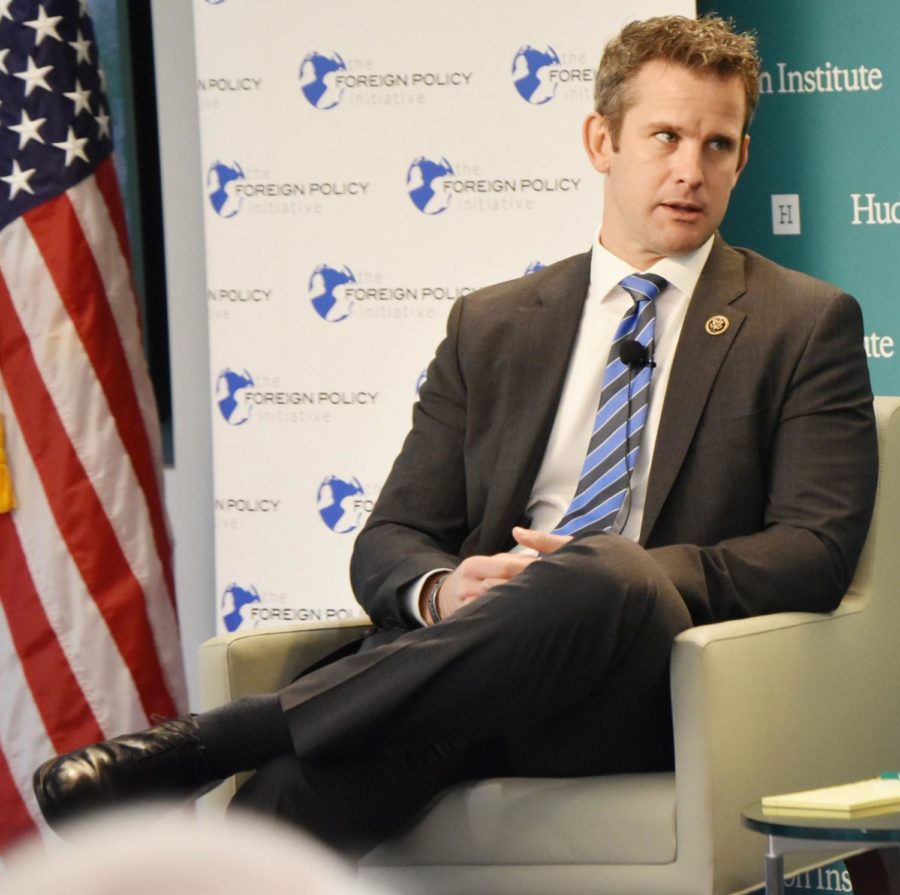Tyrrell: I see hope in our leaders
March 3, 2021
Last week I read a profile on U.S. Rep. Adam Kinzinger, and something about it unsettled me so much that I’m still thinking about it a week later.
I couldn’t quite put my finger on what it was about Kinzinger that rattled me. I’d never heard of him before, but the article immediately caught my attention, not just because of its arresting title (“The man who refused to bow”) but because it described something so lacking in current American politics that it almost felt like a revelation: A representative who refuses to be swayed from his convictions, even in the face of the rest of his party.
Kinzinger is a Republican. But as he described to The Atlantic why he believes the state of his party is in disrepair, his sentiments felt weirdly… bipartisan. “You always assumed there was a backstop of truth-telling. No matter how bad it got, ultimately, we would defend the Constitution and tell the truth,” Kinzinger said. “And I don’t believe that anymore.”
This, I think, is what shook me so much. It’s an ominous warning to hear from someone currently seated in power. But it stuck with me for so long because it rang familiar, reminding me of someone else — the boogeyman of the right, U.S. Rep. Alexandria Ocasio-Cortez.
Unexpectedly, I think Kinzinger and Ocasio-Cortez share a lot of similarities. Neither one is afraid to criticize their party or ruffle feathers, and both are guided by strong convictions about what it means to be a civil servant. And despite how unnatural it feels to find similarities across party lines today, that gives me hope.
Reading about Kinzinger’s journey from military service to the House of Representatives and the personal beliefs that have shaped his decisions was like a breath of fresh air. I felt similarly following Ocasio-Cortez’s campaign in the Bronx and Queens in 2018. It seems almost a rarity to see a politician guided by conviction and steadfast credence rather than the moving tentpoles of the Democratic or Republican parties. How did we get here?
Unfortunately, the fragmentation of Westernized democracies into tribalism and identity politics over the last few decades has a strong gravitational pull. It turns out it’s much easier to cave to the emotional response triggered by fear tactics than it is to evaluate what we’re hearing in a rational, skeptical way; and at this point, there still seems to be a vacuum in place of the sort of broad coalition needed to coax America out of the pit. So where do we go from here? How do we, as a nation, refocus on honesty and integrity in our elected officials rather than fear-mongering?
I don’t think anyone has all the answers, but reading about Kinzinger and Ocasio-Cortez, I realized the way forward is present in a handful of audacious leaders and grassroots movements across the country. It just might take the effort of a lot of individuals before the populace as a whole shifts away from fear toward inclusivity and honest debate.
So, let’s be those individuals. The effort required from us looks like voting based on our values rather than the superficial appeal or branding of any one politician. It looks like finding like-minded people who share our values and engaging with them — and realizing we might share a lot of values with people who vote very differently than us. It requires holding our elected officials accountable to the promises they made us, even when it feels unpleasant and exhausting (looking at you, Biden administration).
It requires, above all, engaging in the political process with thoughtfulness and grace and making room for mistakes in each other without making room for hatred. All of those things can exist at the same time. I might disagree with a lot of Kinzinger’s politics, but I see those qualities in him, and that gives me faith in us — in America.
Our worst leaders deal in despair and find victory in our fear. I choose hope instead.







